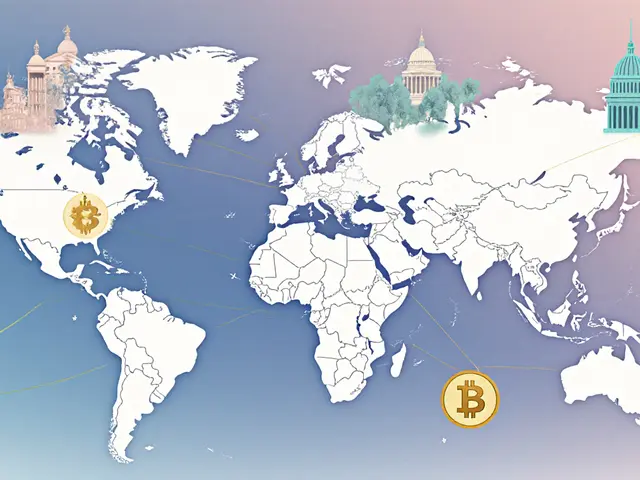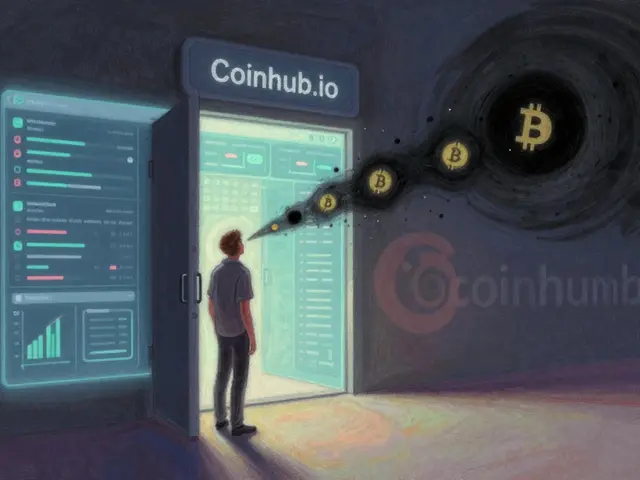OFAC Crypto Enforcement: What Crypto Businesses Must Know in 2025
When you hear OFAC crypto enforcement, the U.S. government’s legal power to block cryptocurrency transactions tied to sanctioned individuals or entities. Also known as crypto sanctions, it’s no longer theoretical—this is active, real-time regulation that can shut down exchanges, freeze wallets, and hit businesses with massive fines. The Office of Foreign Assets Control, or OFAC, doesn’t just target banks anymore. In 2025, any crypto business handling U.S. dollars, serving U.S. customers, or even processing transactions through U.S.-based infrastructure must comply—or face penalties up to $750,000 per violation.
OFAC crypto enforcement works by maintaining the SDN list, the Specially Designated Nationals list that includes wallets, addresses, and entities tied to terrorism, drug trafficking, or state-sponsored cybercrime. When a crypto platform fails to screen transactions against this list, it’s not just negligent—it’s breaking federal law. This isn’t about blocking Bitcoin. It’s about stopping bad actors who use decentralized systems to hide money. That’s why compliance isn’t optional. Even if your exchange is based in Singapore or Nigeria, if a U.S. user sends funds to a sanctioned wallet through your platform, you’re on the hook.
Real businesses are already getting hit. One U.S.-based DeFi protocol got fined $425,000 in 2024 for not blocking a wallet linked to a Russian hacking group. Another exchange in Europe lost its banking partner after failing to update its screening tools for new OFAC addresses. The tools aren’t fancy—most use open-source blockchain analytics like Chainalysis or Elliptic. But they must be updated daily. New sanctions drop every week. A wallet that was clean last month could be blacklisted tomorrow.
And it’s not just exchanges. Wallet providers, NFT marketplaces, even crypto ATMs are now under scrutiny. If you’re running a node, offering staking, or hosting a dApp that accepts payments—you need to know who’s sending the money. OFAC doesn’t care if you’re "just a tech company." If your service enables a transaction to a sanctioned address, you’re part of the chain.
So what do you actually need to do? Start with screening. Every incoming and outgoing transaction must be checked against the current SDN list. Automate it. Then, document everything. Keep logs of every block, every alert, every decision. If the government comes knocking, your paper trail is your shield. Train your team. Don’t assume your developer knows what an OFAC address looks like. Most don’t. And finally, don’t rely on third-party tools alone. Update them. Test them. Audit them.
OFAC crypto enforcement isn’t going away. It’s getting sharper. The U.S. Treasury is working with Europol, the UK’s NCA, and even the UAE to share sanctions data globally. What happens in New York affects your business in Jakarta. This isn’t about politics—it’s about survival. If you’re in crypto and you’re not thinking about compliance, you’re already behind.
Below, you’ll find real examples of what’s happening on the ground—how exchanges are adapting, which tools actually work, and what happens when you ignore the rules. These aren’t theory pieces. These are case studies from 2025.

In 2024, $15.8 billion in cryptocurrency flowed to sanctioned entities, proving crypto is now a key tool for illicit finance. Bitcoin dominated, DeFi enabled evasion, and exchanges like Garantex became targets. Here's what it means for users and regulators.
Jonathan Jennings Nov 23, 2025




